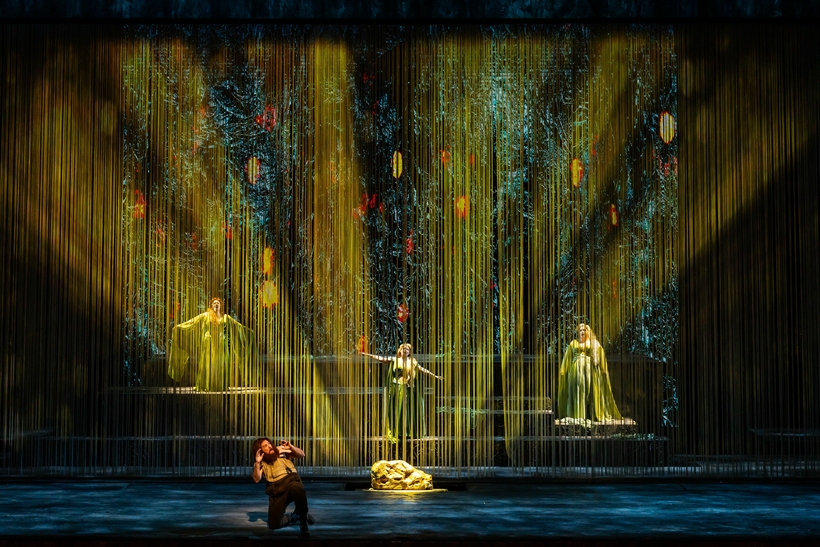Under the leadership of its general and artistic director Tomer Zvulun, Atlanta Opera continues to raise the bar for opera on video. As many other companies do, this one streams live productions for immediate consumption. But for the permanent record, there’s a feature film with extra material filmed after the fact. Once that’s released, the original is retired. And that’s how it will go with Richard Wagner’s Das Rheingold, the opening salvo of Atlanta’s eagerly awaited “Ring” cycle, premiering live online on May 5.
But will the cinematic reboot down the road be a case of old wine in a new bottle? Not at all, says Felipe Barral, director of the Atlanta Opera Film Studio. By way of explanation, he points to the company’s complementary editions of the Mason Bates hit The (R)evolution of Steve Jobs. “The first version was the live multi-camera broadcast of the show via our streaming platform, of course with a cinematic quality—because we use cinema cameras, not TV cameras—and with a live audio mix of the singers and orchestra.
“The second is a different product, combining footage filmed in the theater on three different nights. On one of those nights, I was onstage myself, filming up close to the action. In addition, we enhance the storytelling with 44 cinematic sequences filmed on locations with the singers. We took them to Serenbe to film in nature, and to our own Green Screen Studio and small Black Box space. Finally, the music has been mixed and mastered for film, combining audio from different nights as well.”

Which Rheingold you’ll prefer will depend on you. Those who thrill to the excitement of the one-off live performance, glitches be damned, will plump for the livestream. Perfectionists may want to wait for Rheingold 2.0, fine-tuned in post-production with all the extra bells and whistles. Mind you, interweaving footage from the stage with sequences mimed or lip-synched in the field or the studio is tricky business.
Aware as he must be of the pitfalls, Barral is excited by the possibilities. In the Atlanta Opera’s final cut of Julius Caesar, Barral shows us a key character absent from Handel’s opera: Caesar’s political rival Pompey the Great, who is murdered offstage as the action begins. Early on, the Egyptian nincompoop Ptolemy, brother of Cleopatra, sends Caesar Pompey’s severed head. Caesar is horrified, as are Pompey’s widow Cornelia and son Sesto, who tear through the story seeking revenge.
“In the opera, audiences do see Pompey’s ring and knife, which are precious keepsakes for Cornelia and Sesto. So, for the film we developed a beautiful outdoor scene with the whole family before Pompey goes to war. He gives the knife to Sesto and then walks off through a tunnel as a symbol that he is crossing to another dimension. That sequence adds up to a short film of its own. We drop it in as overlay in certain arias to make the story complete.” In the end, even strict constructionists may want to take that second look.
Das Rheingold will be available for streaming on the Atlanta Opera Web site beginning May 5
Matthew Gurewitsch writes about opera and classical music for AIR MAIL.He lives in Hawaii

